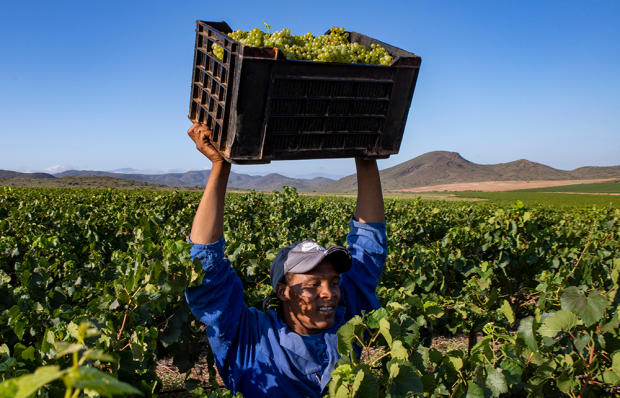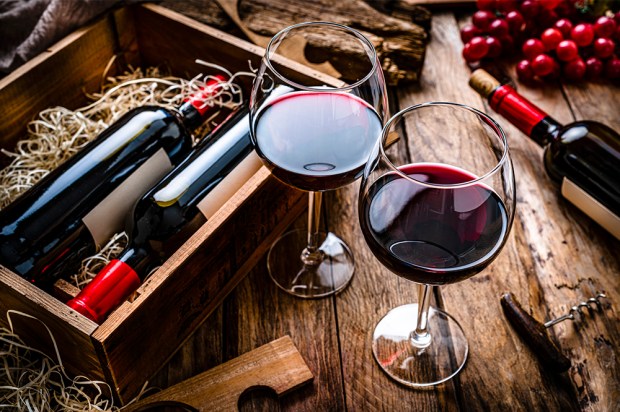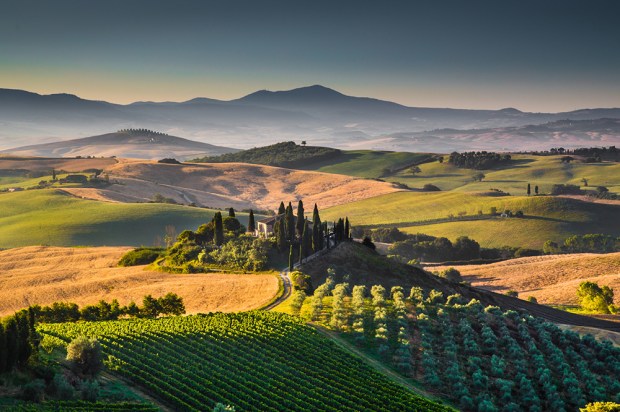As often, a good glass stimulated good talk. We were drinking some promising young Rhônes and the discussion ranged wide, moving onwards from the Rhône itself, to the differences between the UK and our sweet enemy France, then to the merits of democracy and the challenges facing it. Democracy has the overwhelming merit of providing governments with legitimacy, thus ensuring that conflicts are resolved in the legislature rather than on the streets or the battlefield. Though this does not always work — see Germany in the 1930s — it does so often enough to justify the Churchillian maxim: the worst form of government apart from all the alternatives.
Yet there is a problem. If the electoral process is based on PR, governments are likely to be weak. A first-past-the-post system should breed strength, but the danger is that after a narrow result, the minority will sulk off into internal exile, which does not encourage a society to be at ease with itself. We see that in America today and in the UK over Brexit. There is no obvious remedy. Man is a malcontented animal, inclined to burden any system of government with a combination of unmeetable expectations and unsustainable contempt. The troubles of our proud and angry dust are usually beyond any politician’s therapeutic resources.
One might have thought that this would not apply along the banks of the Rhône. A generation ago, a fellow called Yves Lafoy married Jocelyne. They were both agriculturalists, with a mystical delight in making things grow applied to a shrewd sense of what markets would buy. Skill and ambition led them to wine. Their vineyards are around Ampuis, so they are following in formidable footsteps. After the war, Etienne Guigal founded the House that bears his name. Guigal is especially well-known for its Côte Rôtie. With the help of Robert Parker, who is not always wrong, this has achieved international fame and can command world-class prices, enabling the family to buy the Château d’Ampuis, which bears the rust of medieval wars plus the stylishness of later restorations.
So the Lafoys have an example to spur them to success and rivalry. Their son Gaëtan, now the head vigneron, is enjoying the challenge. Qualified judges think he is one of the finest young wine-makers in France. I tasted a couple of his Côte Rôties, from 2015 and 2016. For fruit, structure, style and sophistication, they could not be faulted. All they need is time. We had started with a Condrieu, the supreme expression of the Viognier grape. It has been copied all over the world and never remotely equalled. Condrieu matures faster than most serious wines and this one was already pleasant drinking. In another couple of years it will be formidable.
These Lafoys are wines to watch — and they already have been. In London, they are marketed by H2Vin, which delights in pathfinding its way to new growers. They and Gaëtan have a joyous partnership, and the price is still reasonable, especially in comparison with Guigal.
The last time I visited Ampuis, that was a society at ease with itself: so much so that it put the profonde in La France Profonde. There were no great meals, just sound fare based on the traditional cooking of local ingredients: people eating the way their parents and grandparents would have done. The locals could almost have produced their own version of Asterix and Obelix.
In my last column, I wrote that no one had romanticised the Rhône. Am I in danger of doing so, by implying that the paysage and les fruits de la terre — especially the liquid ones — are an antidote to the human condition? They are certainly a palliative.
Got something to add? Join the discussion and comment below.
Get 10 issues for just $10
Subscribe to The Spectator Australia today for the next 10 magazine issues, plus full online access, for just $10.
You might disagree with half of it, but you’ll enjoy reading all of it. Try your first month for free, then just $2 a week for the remainder of your first year.














Comments
Don't miss out
Join the conversation with other Spectator Australia readers. Subscribe to leave a comment.
SUBSCRIBEAlready a subscriber? Log in